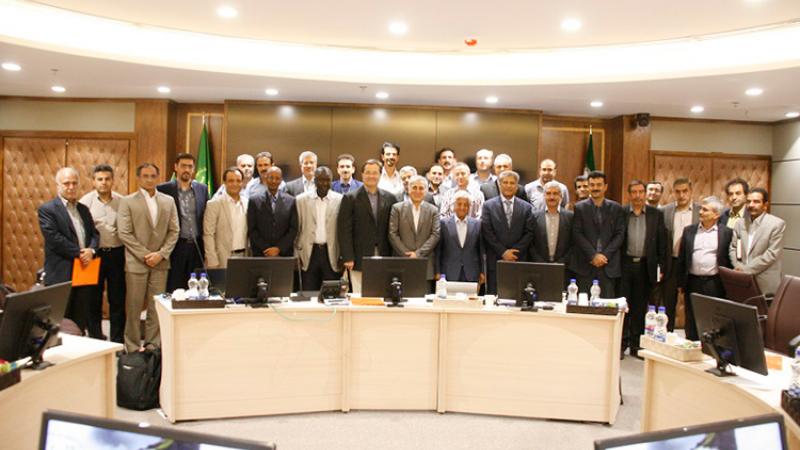Enhancing food security in Iran

ICARDA has approved a plan and budget for the second year of a five-year initiative that aims to raise crop production and strengthen national food security in Iran. The project targets over 905,000 hectares (ha) in four water-scarce provinces of western Iran – East Azerbaijan, Kurdistan, Kermanshah, and Lorestan – and combines crop diversification, germplasm enhancement, and sustainable crop management practices.
After signing an operational agreement with the country’s Ministry of Agriculture and CGIAR partner, the International Maize and Wheat Improvement Center (CIMMYT), the initiative is now ready to move forward with a fast-track evaluation of available technologies and a dissemination strategy involving on-farm demonstrations.
The main focus this year will be improving the efficiency of input-use in wheat, barley and chickpea production, with the ultimate aim of increasing incomes and improving the livelihoods of farmers in target areas.
The project is building on several successes achieved during its first year, including:
- Yield increases. Substantial yield increases of more than 200 kg/ha were generated by 21 of the 29 technology packages promoted by the initiative. These were introduced to some 5000 dissemination farms covering approximately 2500 ha
- Successful dissemination strategies.More than 2500 farmers, agricultural experts, agronomy managers, policy makers and other stakeholders visited implementation sites. At the same time, improved seeds of outperforming varieties were multiplied and distributed to farmers to enhance their adoption.
- Capacity strengthening. Some 250 researchers, technicians and extension agents benefitted from four training courses in Iran, and two outside the country, focused on socio economics, conservation agriculture, and seed system diversification and management.
Speaking at the initiative’s planning meeting, H.E. Mr. Kashavar, Iran’s Deputy Minister of Agriculture for Plant Production, welcomed last year’s impacts, and was confident the initiative would continue to deliver. Referring to new technologies being developed and promoted by ICARDA and the CGIAR, he commented: “We welcome new appropriate crops for the rotation system, more high-yielding crop varieties, effective herbicides, sustainable agronomic practices, and the continued appointment of well-known ICARDA and world experts.”
Also in attendance at the Steering Committee meeting were the Ministry of Agriculture’s Deputy for Economic and Finance, and the Deputy for Research, Education and Extension. Representing ICARDA were the Assistant Director General, Dr. Kamel Shideed, and the Director of Biodiversity and Integrated Gene Management (BIGM), Dr. Michael Baum.
